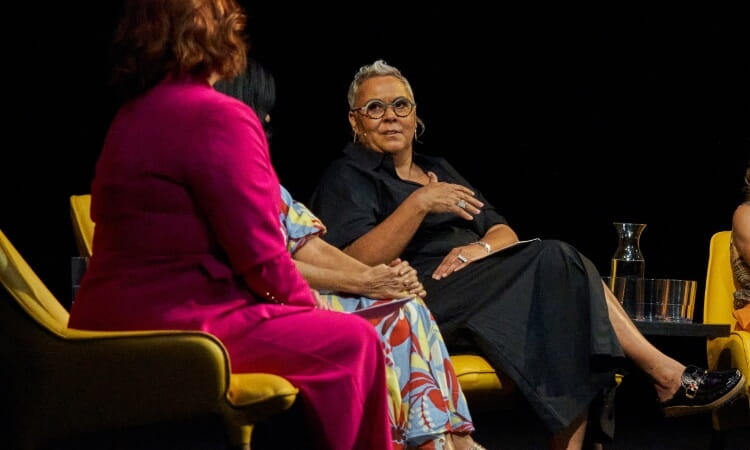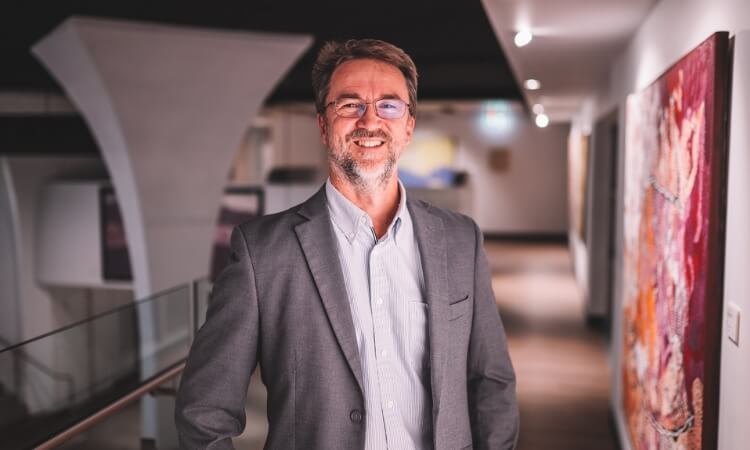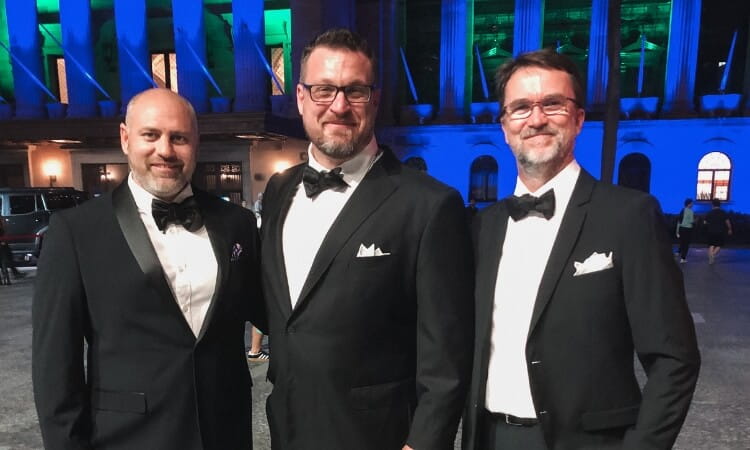Pioneering research to put Indigenous women’s health front and centre

A nationally recognised voice in Indigenous health and cultural safety, Professor Odette Best is driving long-overdue change in Indigenous women’s healthcare, leading scholarship about Indigenous women and gender diverse peoples transitioning through peri-menopause and menopause.
A Goreng Goreng, Boonthamurra, and Yugambeh woman, University of Southern Queensland (UniSQ) Pro Vice-Chancellor First Nations Strategy Professor Best has dedicated her career to ensuring Indigenous women’s health needs are recognised, respected, and represented.
Her work took centre stage at So Hot Right Now: Redefining Menopause – a landmark event and conference at the Sydney Opera House on 1 and 2 March, where she joined an expert panel to discuss the realities of menopause and perimenopause and the gaps that remain in research and healthcare policy for First Nations women.
“For too long, the experiences of Indigenous women during peri-menopause and menopause have been rendered invisible within service provision, research and policy,” Professor Best said.
"We are currently waiting to find out if we are successful in a large Medical Research Futures Fund Grant, which will be the largest study ever conducted with First Nations women and gender diverse peoples in Australia.
“This project is about listening to our voices, understanding our needs, and ensuring we have access to culturally safe healthcare and resources that acknowledges our unique experiences. It is research with us, for us, and by us, that is about us.”
Despite systemic barriers, including funding challenges, Professor Best remains steadfast in her mission. Her research is not just about gathering data – it’s about ensuring dignity, access, and respect for Indigenous women navigating peri-menopause and menopause.
The So Hot Right Now event, which attracted a sold-out audience of 2,500 people and was live streamed globally, provided a powerful platform to amplify this critical conversation.
The conference component saw 400 people attend, including a strong contingent of GPs, exercise physiologists, nutritionists, and nurse practitioners eager to hear from global women’s health experts Dr Louise Newson, Dr Mary Claire Haver, Dr Kelly Casperson, and Dr Vonda Wright, and Professor Best.
Professor Best’s participation in this high-profile event underscores the urgent need for inclusive and culturally safe healthcare research, service provision and policy for Indigenous women and gender diverse people.
Her research is set to influence future discussions on peri-menopause and menopause care, ensuring Indigenous women’s voices are no longer rendered invisible.


